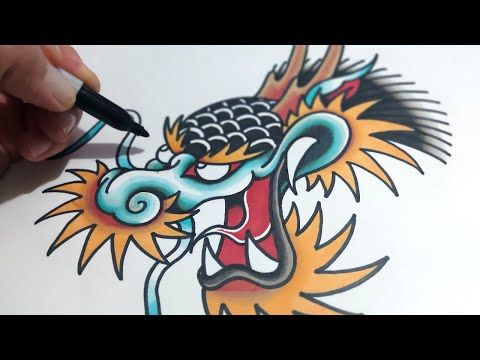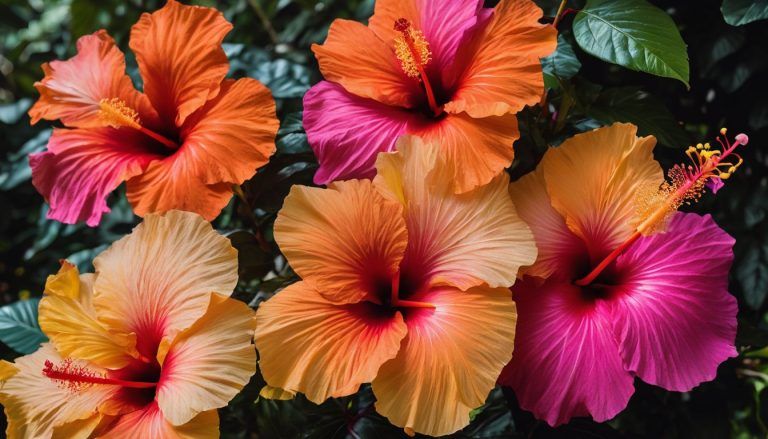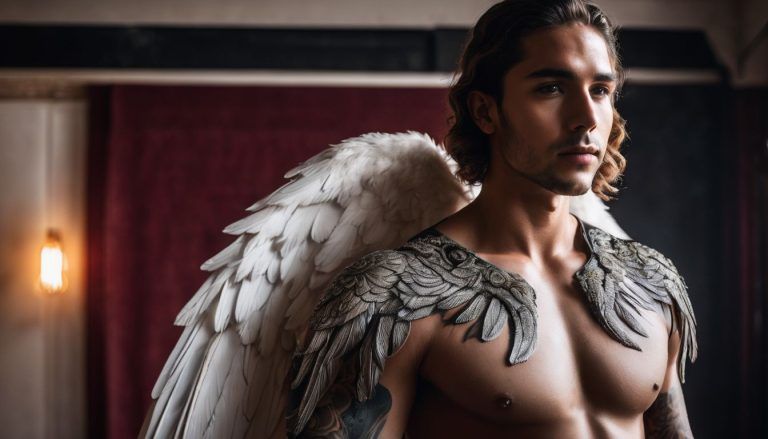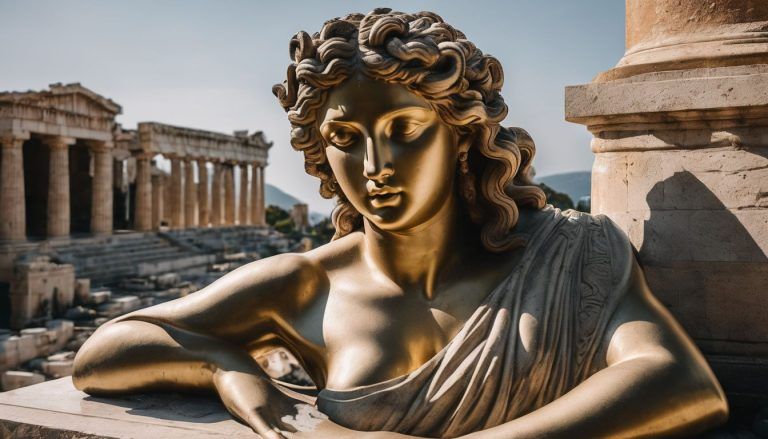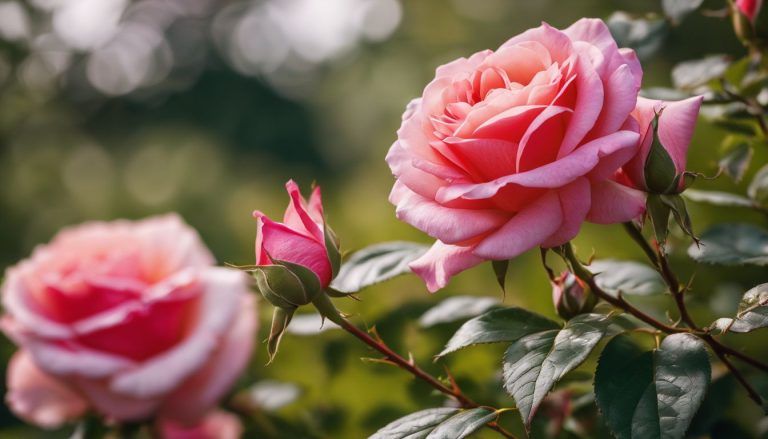Exploring the Meaning and Symbolism of Traditional Dragon Tattoos
Many people get tattoos but wonder about their deeper meanings. Dragon tattoos are steeped in mystery, symbolizing power and wisdom across various cultures. This article will reveal the rich history and symbolism behind dragon tattoo art, guiding you to choose a design with personal significance.
Discover the dragon’s secrets within these lines!
Key Takeaways
- Dragon tattoos are meaningful symbols in many cultures, often associated with protection, strength, and good fortune.
- Each culture has its unique interpretation of dragon tattoos; for example, Chinese dragons represent imperial power and luck while Celtic dragons signify magic and wisdom.
- Placement of dragon tattoos varies but is commonly found on the back, arm, or leg to allow for larger designs that show off intricate details.
- There are different artistic styles of dragon tattoos ranging from realistic depictions with lifelike shading to traditional designs featuring bold lines and vibrant colors.
- Choosing a dragon tattoo involves considering personal meanings as well as the cultural heritage represented by the specific design.
The History and Meaning Behind Dragon Tattoos
Dragons have been a part of human mythology for centuries, symbolizing protection and strength in various cultures around the world. From Asian to European traditions, dragon tattoos hold deep symbolic meanings that reflect different cultural beliefs and values.
Symbol of protection and strength
Dragon tattoos carry deep significance as protectors. They are etched onto the skin to serve not just as art, but as guardians against adversities. In Japanese culture especially, these mythical creatures are revered for their protective qualities and considered powerful allies in warding off evil spirits and bringing good fortune.
Many choose dragon designs hoping to harness this sense of security, embodying courage and resilience.
Serving also as emblems of strength, they symbolize overcoming challenges with fearlessness and fortitude. This is evident in tattoo imagery where dragons are seen battling foes or perching mightily atop celestial realms—visual metaphors for triumph and power.
Each curl of the dragon’s body tells a story of might combined with wisdom; an enduring reminder that the bearer carries both a shield against misfortune and a beacon of inner strength.
Venturing further into the realm of cultural diversity, we see how representations shift across various traditions.
Representations in different cultures
Dragon tattoos hold diverse meanings in various cultures, with unique designs inspired by different cultural backgrounds. In Chinese culture, the dragon represents power, good luck, wisdom, peace, and strength.
It is seen as a symbol of imperial authority and is often associated with royalty and prosperity. On the other hand, Japanese dragon tattoos symbolize strength, courage, wisdom, protection, and good fortune.
The dragon is revered as a guardian creature that brings luck and protects from harm. Similarly, Vietnamese dragons are associated with power and nobility while Celtic dragons symbolize bravery and fortitude in European folklore.
In addition to these representations in different cultures mentioned above for dragon tattoos there are also varying symbolic meanings found across tribal traditions around the world.
Symbolism and Meanings of Dragon Tattoos
Dragon tattoos hold various symbolic meanings in different cultures. In Asian cultures, they symbolize good luck and prosperity, while in European cultures, they represent power and wisdom.
These meanings add depth to the significance of dragon tattoos for those who choose to adorn themselves with these majestic creatures.
Good luck and prosperity in Asian cultures
Asian cultures view dragon tattoos as symbols of good fortune, prosperity, and protection. In Chinese tradition, the dragon is a powerful symbol of luck and wealth. The belief in its ability to bring good luck has made it a popular choice for tattoos among many Asian communities.
Japanese culture also reveres the dragon as a guardian deity and a source of strength and good fortune. The imagery of dragons in Asian folklore often represents resilience against adversity and the promise of success.
The symbolism associated with dragon tattoos in Asian cultures emphasizes positive energy, prosperity, and auspiciousness. This makes them highly sought after by individuals looking to embrace these traits through body art.
Power and wisdom in European cultures
In European cultures, dragon tattoos are associated with power and wisdom. The image of a dragon embodies strength and resilience, often symbolizing the ability to overcome challenges.
Dragons in European mythology are seen as wise creatures, possessing knowledge beyond what mere mortals can comprehend. These tattoos hold deep cultural significance and are often adorned with intricate designs that reflect the rich historical context of Europe.
European dragon tattoos can also represent a connection to ancient traditions and folklore, signifying an appreciation for heritage and a reverence for wisdom passed down through generations.
Different Types of Dragon Tattoos
From Chinese dragons symbolizing power and good luck to Japanese dragons representing wisdom and strength, traditional dragon tattoos hold significant cultural meanings. Additionally, Vietnamese, Celtic, and Eastern dragons each have their own unique symbolism in tattoo art.
Chinese dragons
Chinese dragons are a significant symbol in Chinese culture, often representing power, good luck, wisdom, peace, and strength. The dragon is associated with yang energy and the emperor in traditional Chinese mythology.
In Chinese mythology, dragons symbolize control over water-related phenomena like rainfall and floods. In tattoo art, Chinese dragon designs are distinguished by their long serpentine bodies and five claws on each foot.
In the context of body art symbolism, a prominent design element seen in the representation of these legendary creatures is the depiction of a dragon fighting a snake to illustrate the age-old conflict between modernism and tradition.
Japanese dragons
From the majestic Chinese dragons, we move on to the equally revered Japanese dragons. In Japanese culture, dragons are seen as symbols of strength, courage, wisdom, protection, and good fortune.
These mythical creatures are deeply rooted in Japanese folklore and are believed to bring blessings and prosperity to those who honor them through tattoos. Often depicted with three claws instead of the usual five in Chinese depictions, Japanese dragon tattoos symbolize creativity and freedom.
The traditional role of these dragons in Japan reflects their influence as guardians against evil spirits and their ability to bring about change for the better.
Vietnamese dragons
Transitioning from Japanese dragons to Vietnamese dragons, the symbolic representations in traditional tattoos continue to reveal fascinating cultural nuances. Vietnamese dragon tattoos are known for their long, snake-like bodies and curved tails, inspired by local folklore and mythology.
These mythical creatures are revered for their power, wisdom, and protection in Vietnamese culture. Often depicted as symbols of good luck and prosperity, these unique dragon designs hold deep significance within the Asian tattooing tradition.
Drawing upon centuries-old legends and stories, Vietnamese dragon tattoos embody strength and resilience while serving as timeless emblems of tradition with a touch of modern artistic interpretations.
Celtic dragons
Transitioning from Vietnamese dragons, Celtic dragons have their own unique symbolism and cultural significance. In Celtic mythology, dragons are often associated with power, magic, and wisdom.
These creatures represent both the earthly and the spiritual worlds and are believed to guard treasures as well as possess knowledge of ancient mysteries. In Celtic tradition, dragons were seen as protectors of the land and were revered for their strength and courage.
The intricate knotwork commonly found in Celtic art is often incorporated into dragon tattoos, adding further layers of symbolism related to eternity, loyalty, and interconnectedness.
Celtic dragon tattoos hold a deep connection to Irish folklore and symbolize resilience, protection, and ancestral heritage. The intricate designs capture the essence of Celtic mythology while celebrating the rich history of this ancient culture.
Eastern dragons
Chinese, Japanese, and Vietnamese dragons are the Eastern variations of dragon tattoo designs. Chinese dragon tattoos symbolize power, wisdom, and good luck while Japanese dragons represent strength, courage, protection, and good fortune.
Vietnamese dragon tattoos honor their cultural folklore by embodying symbols of life force and prosperity. These distinct Eastern dragon designs carry deep-rooted meanings within Asian cultures.
Celtic dragons hold significance in European mythology due to their association with strength and protection. The majestic figures of Eastern dragons play a crucial role in representing cultural symbolism across diverse traditions.
Placement and Popular Styles of Dragon Tattoos
Dragon tattoos are typically placed on the back, arm, or leg, with traditional styles often featuring bold lines and vibrant colors. Some people opt for realistic dragon tattoos, while others prefer more traditional artistic representations.
Traditional placement on the back, arm, or leg
Traditional dragon tattoos are commonly placed on the back, arm, or leg. These placements allow for larger and more intricate designs that beautifully showcase the details of the dragon’s scales, claws, and wings.
The back provides a canvas for expansive depictions of dragons in flight or battling other mythological creatures while arm and leg placements can elegantly wrap around the limb, creating a dynamic and powerful visual impact.
The placement of traditional dragon tattoos reflects cultural significance and artistic expression, often incorporating symbolic elements such as water currents for Chinese dragons or cherry blossoms for Japanese dragons.
Realistic vs. traditional styles
Realistic dragon tattoos are characterized by intricate detailing and lifelike depictions, often capturing the creature in vivid colors and textures. This style emphasizes the dragon’s anatomy and features a high level of visual realism, offering a modern interpretation of this timeless symbol.
In contrast, traditional dragon tattoos showcase bold lines, strong outlines, and vibrant colors to create powerful images with a rich cultural heritage. These designs often incorporate symbolic elements from specific cultures such as Chinese or Japanese mythology, reflecting deep-rooted meanings within the artwork.
When choosing between realistic and traditional styles for a dragon tattoo, individuals should consider their personal preferences along with the symbolism they wish to convey through their body art.
Conclusion
In conclusion, traditional dragon tattoos hold deep cultural significance and symbolism across different societies. These designs represent power, wisdom, protection, and good fortune in various cultures.
The wide range of artistic styles and placements for these tattoos allows for a meaningful expression of personal values and beliefs through body art. Whether depicting Asian or European traditions, dragon tattoos serve as powerful symbols of strength, courage, and the interconnectedness of diverse cultural heritages.
FAQs
1. What does a traditional dragon tattoo symbolize?
A traditional dragon tattoo often represents strength, wisdom, and protection in various cultures.
2. Are there different meanings for dragon tattoos in Asia?
Yes, Asian dragon tattoos like the Japanese or Chinese ones have unique symbolism such as good luck, power, and cultural significance.
3. Can a dragon tattoo mean something about protection?
Indeed, many believe that dragon tattoos can symbolize protection from evil forces according to mythology.
4. Does the design of a dragon tattoo change its meaning?
The meaning of a dragon tattoo can vary with different designs; traditional symbolism is embedded in specific features like color or shape in cultural tattoo symbolism.
5. Why are dragons so significant in tattoo art?
Dragons are symbolic creatures with deep roots in history and mythology making them popular choices for those seeking meaningful body art with rich tradition.

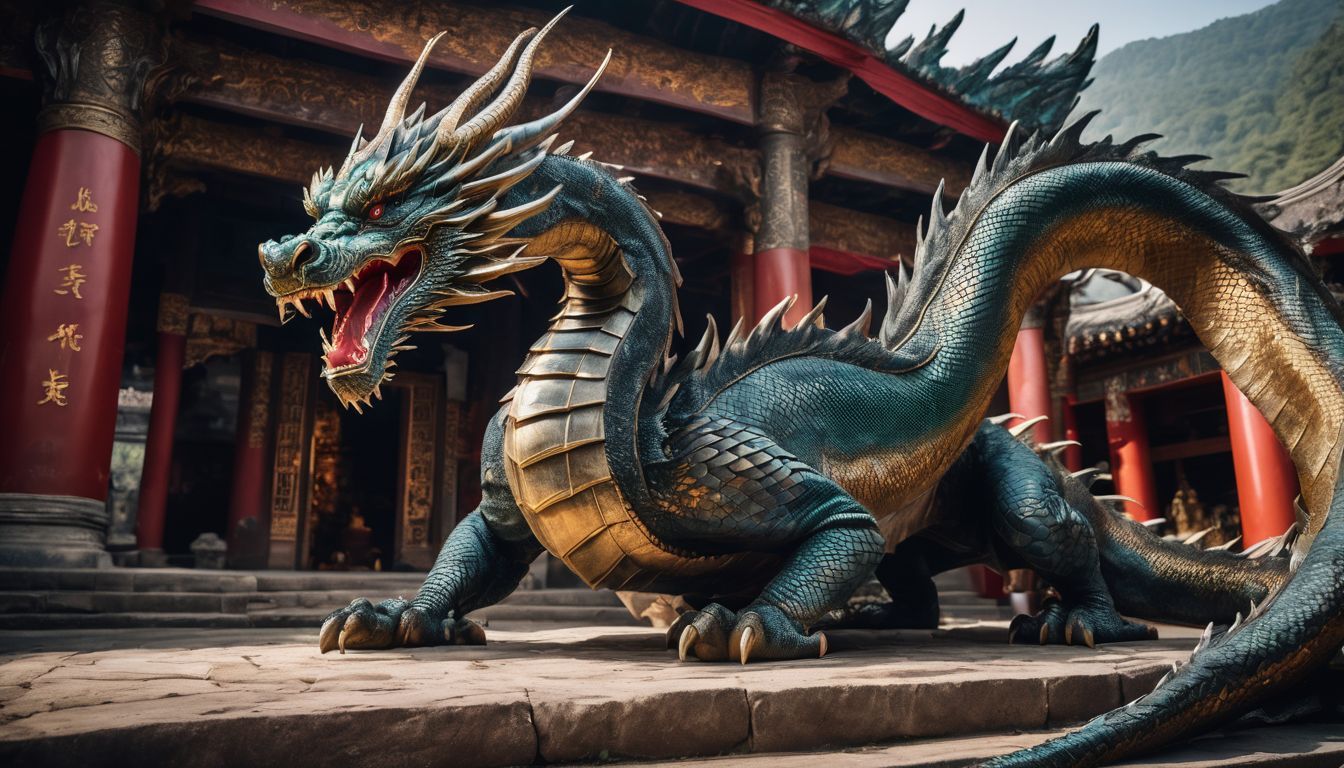

![The Dragon: Meaning of the Esoteric Symbol [Esoteric Saturday + Art]](https://3665cebf.flyingcdn.com/wp-content/cache/flying-press/5FLku2Q44fg-hqdefault.jpg)
